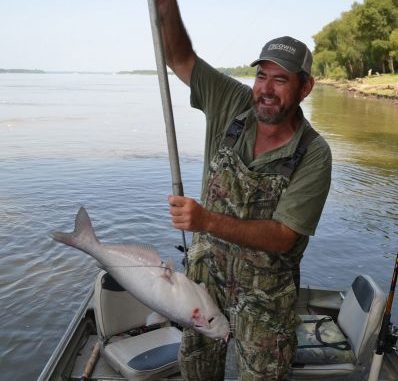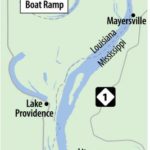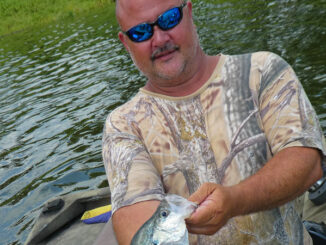
The border between Mississippi and Louisiana is the Mississippi River.
Right?
Sounds simple, but it isn’t.
The big river is restless and constantly shifting its bed, throwing loops and coils like a giant, slow-motion snake.
Its powerful currents gnaw at one of its banks or the other. As its waters carry away the soil in that spot, the river bed slowly shifts to that side.
With time, the constant erosional action creates an almost comically large loop in the river bed. Then the river decides that the big loop isn’t efficient enough. During a spring flood, the river cuts a new channel across the neck of the loop, leaving its old bed stranded as an oxbow lake.
This is of more than geological interest. When the river changes course, does the state line change as well?
The answer, of course, is no.
So large chunks of Louisiana lie east of the river in what looks like Mississippi and vice versa.
The river has changed course so many times since the states’ boundary was drawn that over the entire stretch of Louisiana-Mississippi border, the official state line is more often not in the river than it is in it.
Where Jim Danley fishes — with East Carroll Parish, La., on the west and Issaquena County, Miss., on the east —, most of the river has Louisiana on both banks or Mississippi on both banks.
A glance at the accompanying map illustrates its complexity.
So which state’s license do fishermen have to buy? Or do they have to buy both states’ licenses to effectively fish the river?
Lieutenant Col. Sammy Martin of the Louisiana Department of Wildlife and Fisheries Enforcement Division and Lt. Col. Sammy Fisher of the Mississippi Department of Wildlife, Fisheries and Parks Law Enforcement Bureau were in agreement that fishermen holding valid resident fishing licenses in either state are able to fish all waters associated with the Mississippi River that are located within the boundaries of the Mississippi River levee system.
There is one caveat, however, as pointed out by Dennis Riecke, fisheries coordinator for MDWFP.
Louisiana allows the recreational use (with a license) of hoop nets or slat traps to catch catfish.
Mississippi law, however, defines all hoop nets and slat traps as commercial gear and requires possession of the appropriate commercial licenses to use them.
Rods and reels are recognized as recreational gear in both states, and their use is covered by each state’s basic fishing license.


